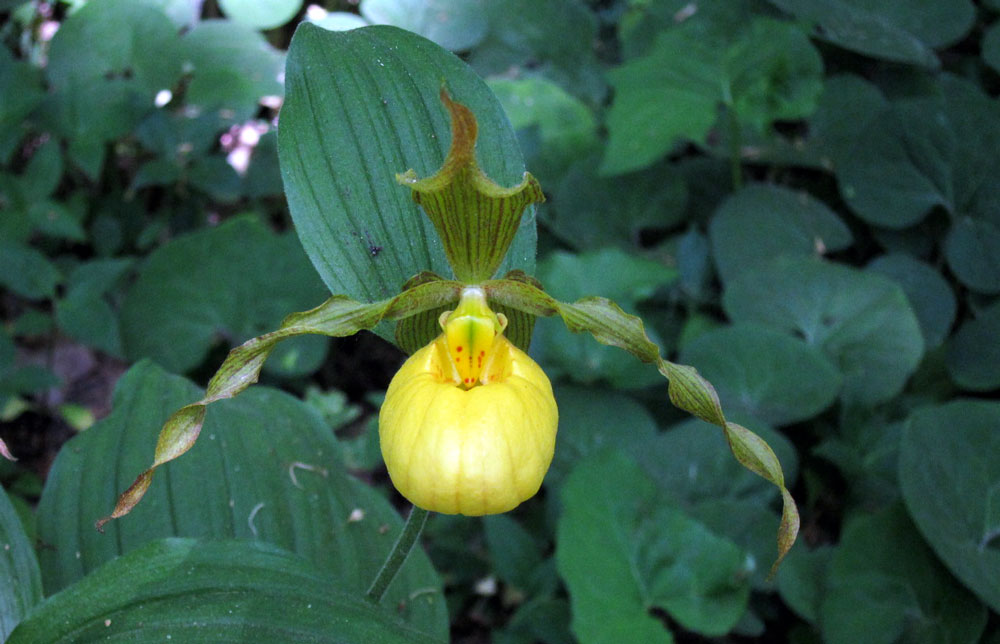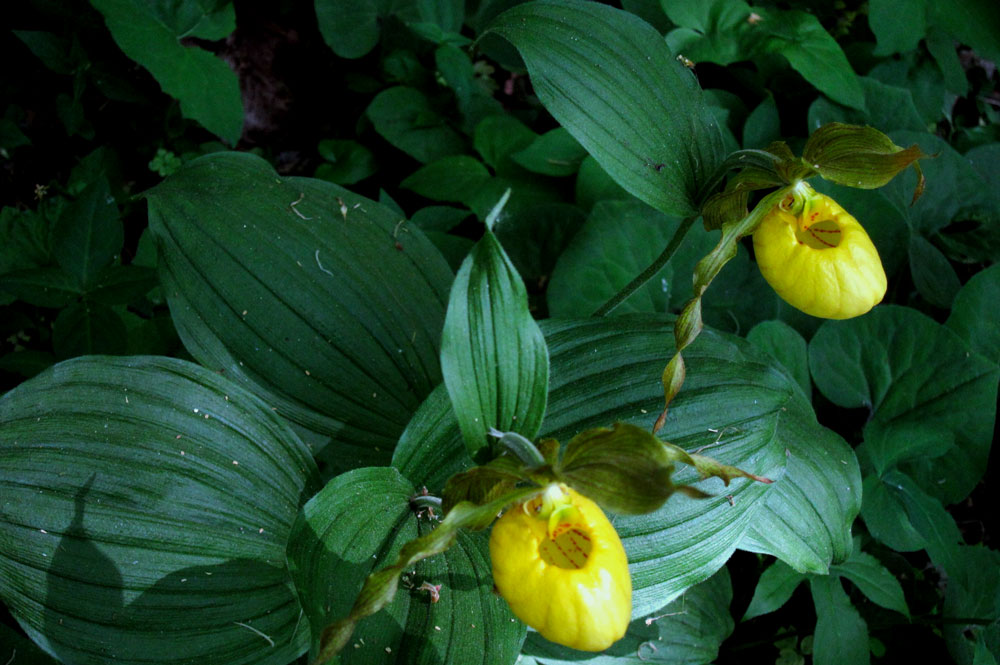Getting out of the city presents some thrilling opportunities to see amazing plants that grow in the Midwest’s relatively unfrequented woodlands and swamps. One such is the yellow lady’s slipper orchid, a showy native perennial which I saw recently for the first time.
The inflated, balloonlike petal that gives the plant its name nests at the center of several other slender, twisting, greenish-yellow petals and sepals that are streaked with purple. Though this plant has been known to these parts for hundreds of years, its status is no longer secure. The plants should never be picked or disturbed. They rely on very particular conditions to flourish and reproduce.
According Stan Tekiela, author of Wildflowers of Michigan,
Orchids are highly specialized plants needing their own special fungus growing on their roots to survive. This is why they . . . should be enjoyed in the wild only. Orchid seeds are like specks of dust; they consist only of an embryo (no stored food). They depend on being invaded by a fungal hyphae to infuse the seeds with nutrients. This process takes several years before any roots or shoots develop. All orchids are protected by conservation laws in Michigan.
The genus name Cypripedium means literally “the foot of Venus,” which I think is an apt name for a glorious flower.
Click here and here for related posts about lady slippers in other parts of the U.S.



Pairodox Farm says
I hope it’s OK to like the post that you’ve linked to me!? Sorry if I’ve overstepped the bounds of blogging etiquette. D
Celia says
I think you’re well within those bounds–not to worry.
Harley says
Wow-and wow again! You must have been totally thrilled to make such a sighting!!!!….I am impressed!!!!
Celia says
Thank you, H. I have read before about the lady slipper so yes I did enjoy seeing it. And I managed to take a clear picture, so that was a boon, too. A big part of it is the thrill of using one’s eyes. There is so much beauty in this world.
Tricia says
Good info. Many orchids are endangered because they are gathered from the wild.
Celia says
Yes; it’s paradoxical that humans feel the need to plunder, when wherever they live there is something precious and rare to enjoy: it may be a strange ant or an unusual dandelion.
I love some of these citizen-science projects that have taken off in various locales. People are discovering rare and unknown things all around them.
thank you for writing in, Tricia.